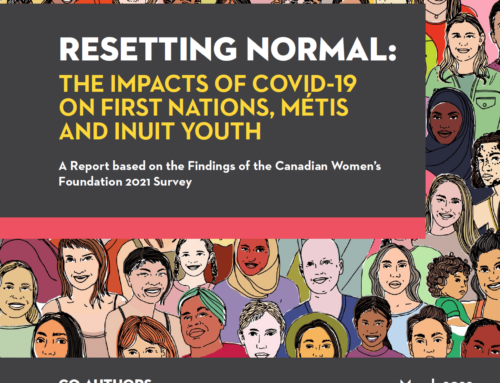People in Canada are most concerned about the COVID-19 crisis and the economy. And the majority also want government recovery plans to specifically address the unique impacts of the pandemic on women.
The Speech from the Throne on September 23 addressed many issues related to the pandemic, gender, and the economy, as well as other issues advocates and community leaders have spoken about for years. It’s a far-reaching statement that will require strong partnership between all levels of government, solid investment and execution with community partners, as well as accountability for results.
Announcements and Promising Potential Impacts
Sustained investment in a national early learning and childcare system. Childcare has been unaffordable and inaccessible in Canada for too long, and the fractures are especially glaring in the pandemic. A shocking 1 in 3 women have considered quitting their jobs to help their children attend school virtually. Childcare is a vital piece of the puzzle for meaningful gender equality and enables higher quality of life for women, their families, and communities.
Commitments to stabilize women’s economic well-being. The promised Action Plan for Women in the Economy can be an opportunity to centre the needs of diverse women and their work, and stop further backsliding on economic gains. In the wake of the pandemic, women’s participation in the labour force fell to the lowest level since the 1980s. Women were first to lose their jobs and lagged significantly behind men in the economic recovery. By June 2020, single-parent mothers had recovered only 23 per cent of their hours, and those with kids under the age of six had recouped only 19.6 per cent of pandemic employment losses.
Coupled with the Women’s Entrepreneurship Strategy and investments in industries that are women-dominated and often under-compensated, such as hospitality and tourism, the effectiveness of this plan is particularly promising.
The promised modernized version of Employment Insurance (EI) may also help address women’s poverty – in particular those who lost work in the pandemic and may not have previously qualified for EI. And contributions to food security and an expanded National Housing Strategy can help ensure women and girls have access to basic needs.
Action on systemic racism. Effectively countering online hate, most often directed at racialized women and girls, is an important step. And the promised moves toward collecting disaggregated data can help Canada better identify the impacts of racist systems, get resources to where they are most needed, and inform good policy decisions. Committing to tackle discrimination against Black and Indigenous people in policing and legal system is critical to ending systemic racism, as is accelerating work on a National Action Plan to address violence against Indigenous women, girls, and 2SLGBTQQIA people.
Action on gender-based violence. Guns are the single greatest risk factor for lethal domestic violence, so promises to restrict gun ownership are fundamental to ensuring women’s safety. And support for shelters and transitional housing, as well as moving forward on development of a National Action Plan on Gender-Based Violence, are imperative to equity and safety. Temporary housing will be especially important in Northern communities, as is more support for shelters for Inuit women.
The COVID-19 pandemic has both exacerbated and laid bare the depth of inequalities in Canada, which have always and continue to fall heavily on diverse women and Two Spirit, Trans, and non-binary people. We look forward to learning more about how these plans will be carried out, and recognize how important sector funding and community consultation on best practices will be in their execution. We are eager to support this approach to build—and rebuild—essential tools for gender justice.
Learn more:







